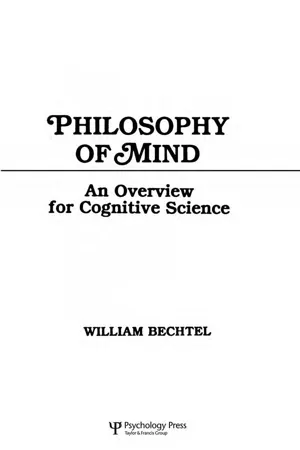Social Sciences
Functionalism
Functionalism is a theoretical perspective in sociology that views society as a complex system with interconnected parts working together to maintain stability and order. It emphasizes the functions and contributions of social institutions and practices to the overall functioning of society. Functionalism focuses on the ways in which different aspects of society serve specific purposes and contribute to the maintenance of social equilibrium.
Written by Perlego with AI-assistance
Related key terms
8 Key excerpts on "Functionalism"
- eBook - ePub
Rethinking Sociological Theory
Introducing and Explaining a Scientific Theoretical Sociology
- Stephen K. Sanderson(Author)
- 2015(Publication Date)
- Routledge(Publisher)
Chapter One Functionalism BASIC PRINCIPLES Functionalism is a term that has been widely used in the social sciences, sociology and anthropology in particular, to identify a variety of related lines of thought. For my purposes, a crucial distinction must be made between Functionalism as a theoretical tradition and a functionalist mode of social explanation. The former incorporates the latter, but the latter can stand on its own and can be (and sometimes is) associated with other theoretical traditions. Functionalism as a theoretical tradition began in anthropology in the early part of this century with the works of such prominent figures as Bronislaw Malinowski and A. R. Radcliffe-Brown. 1 These thinkers sought to identify the parts of society, show how they were interrelated, and demonstrate their function or functions for the maintenance of society. Both Radcliffe-Brown and Malinowski, especially the former, were greatly influenced by Emile Durkheim, whose ideas also had a major influence on sociological Functionalism. Functionalism came into sociology partly by way of importation from anthropology and, more substantially, through the work of Talcott Parsons and his students and disciples. In The Social System, Parsons generated a functionalist model of societies as social systems. 2 He was preoccupied (virtually to the point of obsession) with the “problem of order,” and his sociological theory is overwhelmingly devoted to dealing with this problem. Like Durkheim, Parsons strongly rejected nineteenth-century utilitarian thinking. Society could not be composed simply of individuals pursuing their own interests, for such a thing would not be stable - eBook - ePub
Human Behavior in the Social Environment
Perspectives on Development and the Life Course
- Anissa Taun Rogers(Author)
- 2022(Publication Date)
- Routledge(Publisher)
In contrast to conflict theory and critical practice theory, functionalist theory attempts to explain how various aspects, or functions, of a society work together to maintain stability. Specifically, functionalist theory is concerned with the ways in which values, norms, institutions, and organizations contribute to the overall good of society. Like the systems and ecological theories discussed in Chapter 2, the functionalist approach views society as a living organism that consists of parts functioning as a whole. All systems coexist and are dependent on one another, and they work together to ensure the smooth functioning of the whole. Aspects of society that are functional and contribute to society will be maintained and passed on from one generation to the next. In contrast, dysfunctional systems will be changed or thrown out altogether. Emile Durkheim Emile Durkheim (1933, 1938), a pioneer in the field of sociology, made many contributions to Functionalism through his work on biological processes and their application to social systems. He also promoted the idea that behavior must be considered within its social context. He concluded that society must be considered as a functioning whole; its parts cannot be viewed separately. He posited that these parts serve a function, purpose, or role that contributes to the whole. Through his analyses and ideas, Durkheim influenced other sociologists who were developing functionalist theory. One of Durkheim’s observations was that, for society to function well and to maintain homeostasis, it must meet various needs (such as social, physical, emotional, and economical) of its members and institutions (Turner, 1998) - eBook - ePub
- Ewan Ingleby(Author)
- 2017(Publication Date)
- SAGE Publications Ltd(Publisher)
Chapter 2 Functionalism and social workIntroduction
This chapter outlines how Functionalism is useful for social workers. The chapter begins by describing what Functionalism is and how it is applied to social work. Functionalism is then analysed by reflecting on its strengths and weaknesses. Functionalism is a paradigm or model of thought and, as such, it has academic strengths and weaknesses. To demonstrate academic skills, an overall appraisal of Functionalism is given. Consideration is then given to how Functionalism can be applied to our work with key groups of individuals. We explore how to apply Functionalism to children, those with mental health needs or learning disabilities, and older people.What is Functionalism?
Functionalist sociologists, including Émile Durkheim and Talcott Parsons, may be portrayed as perceiving social groups to be more important than individuals (Ingleby 2013). Functionalism explores how social institutions (for example, ‘the family’ and ‘the health system’) work to make social groups function. The perspective assumes that societies, like biological organisms, have basic needs that must be met in order to survive. An example of such a ‘need’ is the importance of health. Functionalists consider that the social order is threatened if shared norms and values about health are not reinforced across social groups. These shared norms and values become widely accepted through socialising individuals, so functionalists are interested in studying the processes that are part of socialisation. Functionalist sociologists seek to identify the ways in which perceptions of health are then established and structured within social groups. One of the key functionalist thinkers is the French sociologist Durkheim. Durkheim’s work is personified in the sociology of crime and punishment in classic social science texts such as The Division of Labour in Society (1893/1984), The Two Laws of Penal Evolution (1899–1900) and Moral Education - eBook - ePub
- Craig Calhoun, Joseph Gerteis, James Moody, Steven Pfaff, Indermohan Virk, Craig Calhoun, Joseph Gerteis, James Moody, Steven Pfaff, Indermohan Virk(Authors)
- 2022(Publication Date)
- Wiley-Blackwell(Publisher)
Part IX Functionalism Introduction to Part IX- 41 “The Position of Sociological Theory”
- 42 “Manifest and Latent Functions”
- 43 “Social Structure and Anomie”
Introduction to Part IX
Functionalism (sometimes called “structural Functionalism”) refers to a body of theory first developed in the 1930s and 1940s that treats society as a set of interdependent systems. The theory rests on an organic analogy that likens a social system to a physical body, in which each subsystem is necessary to maintain the proper functioning of the entire organism. From a functionalist point of view, the key to understanding a social subsystem is thus to trace its function in the working of the whole.According to such arguments, there are a number of functional “requisites” necessary to meet the basic needs of any society (see Aberle et al. 1950). Specific subsystems develop to meet those social needs. Functional theorists generally assumed that these subsystems would tend toward a stable equilibrium, with social change proceeding in a gradual evolutionary manner. For example, the social need for a common form of communication leads to a stable, slowly evolving system of language. The need to control disruptive behavior leads to a relatively stable legal and political system. Perhaps most importantly, every society has some system for assigning people to different social positions and socializing them into the relevant roles, resulting in a relatively stable stratification system. To say that a system is “functional” is thus to say that it serves the needs of the society as a whole, not that it serves the interests of every individual.The intellectual roots of Functionalism stem largely from the organic perspectives of Auguste Comte, Herbert Spencer, and Émile Durkheim and the formal sociology of Georg Simmel. Spencer’s work emphasized a social Darwinist position in which societies adapted to their environments through adaptation and natural selection, a position used to support laissez-faire - eBook - ePub
- Darren O'Byrne(Author)
- 2013(Publication Date)
- Routledge(Publisher)
Robert Merton , was quite radical in his quest to highlight inequalities in society. Instead, I mean ‘conservative’ in that as a perspective, Functionalism takes for granted that there is a ‘natural’ and ‘healthy’ state of society, and that as a result it cannot deal with difference, or with change. It was very much a product of the relative prosperity and stability people seemed to enjoy in Western societies in the 1950s, especially from the privileged perspective of primarily white, male, Western academics sitting in the ivory towers of elite universities, but by the 1960s social unrest, turbulence and conflict were much more apparent, so sociologists turned instead to conflict theory, Marxism and feminism, among others.By the 1970s, then, Functionalism was all but extinct. Some have tried to breathe new life into it – recent examples include Niklas Luhmann, a German who studied under Parsons, who has developed a complex approach called ‘systems theory’, and Jeffrey Alexander, an American who started the ‘neo-functionalist’ movement. However, these are too specific to be included here. But as students of sociology we should not ignore the importance of sociology to our discipline, or the contributions it has made. If we are to better understand sociological theory in all its forms, we could do worse than to begin with the functionalist model.The social system
Let us take a step back for a while and return to this metaphor of society as a system, which is crucial to any functionalist approach in sociology. Make sure you are clear on what we mean by a system. Systems are defined as consisting of component parts which are intended to work together to help the broader system operate smoothly, although each part has a designated role or function to perform to that end. The example we have already used is that of the body. In order for the body to perform to its maximum capacity, to be in a fully ‘healthy’ state, the heart, the liver, the brain, the arms and legs and so on all need to be doing their jobs properly. If one of these component parts is faulty, the body is deemed to be less than fully healthy. Of course, some of these are more important than others. The heart, for example, is charged with the task of pumping blood around the body. If it stops doing that, the entire system breaks down. Failures elsewhere do not have such a critical role to play; there is therefore a natural hierarchy of component parts. The same can be said for all other systems. A computer is a system, a structure that is more than the sum of its parts, which include the hard drive, the monitor, the keyboard and the mouse. If the hard drive crashes, the damage done to my computer as a whole is far more significant than if my mouse is faulty. A car is also a system. For it to perform its task properly, the engine needs to be running smoothly, the wheels need to be turning, the steering wheel and brakes need to be operational, and so on. - eBook - ePub
Philosophy of Mind
An Overview for Cognitive Science
- William Bechtel(Author)
- 2013(Publication Date)
- Psychology Press(Publisher)
7 FunctionalismIntroduction
Functionalism represents a philosophical attempt to explicate a critical part of the research program of cognitive science—the way in which mental events are recognized and classified. Functionalism maintains that mental events are classified in terms of their causal roles. Thus, a mental event would be described in terms of its role in the mental system just as a cam shaft is characterized in terms of its causal role of controlling the opening and closing of valves in a car engine. An important aspect of this approach is the claim that mental events can be recognized and classified independently of their physical constitution. For this reason, Functionalism is often viewed as incompatible with the Type Identity Theory.1 The position on the mind-body problem with which Functionalism is most often coupled is the Token Identity Theory, which likewise dissociates mental event descriptions from those applying to physical events.Using the term Functionalism for this mode of classifying mental events is prone to cause confusion for social and behavioral scientists. In psychology, for example, the term was applied to the research program developed at the turn of the century, most notably at the University of Chicago in the work of Dewey and Angell. Key to this approach was an evolutionary perspective that directed psychologists to attend to the use to which an organism put its cognitive capacities. This evolutionary orientation has been manifest in many 20th century approaches to psychology, including behaviorism. The evolutionary perspective of psychological Functionalism has not played a major role in the philosophical program that goes under the same name. However, in the last part of this chapter I sketch a version of philosophical Functionalism that does introduce an evolutionary perspective.There are actually a variety of different versions of philosophical Functionalism current today. I survey four of these in the first section. Although Functionalism of one form or another has attracted a broad spectrum of adherents, it has also aroused a number of criticisms. Thus, in the second section I present some of the major objections to Functionalism and the answers Functionalists have offered in response. In the last section, I develop the alternative version previously mentioned. - eBook - ePub
In Defence of Sociology
Essays, Interpretations and Rejoinders
- Anthony Giddens(Author)
- 2013(Publication Date)
- Polity(Publisher)
In so far as this sustains equilibrium, homeostatic principles observed in physiology apply also to social systems. Third, the belief that social systems manifest a ‘hidden teleology’, operating through unintended consequences of social action. Merton’s differentiation of manifest and latent functions makes explicit an integral feature of functionalist theory in the social sciences: that social institutions demonstrate a teleology which cannot be necessarily inferred from the purposes of the actors involved in them. In sociological Functionalism, this always depends ultimately upon the thesis, or the assumption, that there are ‘social needs’ which have to be met for society to have a continuing existence. The teleological element in this is normally presumed to be similar to that operating in biological adaptation: ‘needs’ are defined in terms of the facilitation of ‘survival value’. There is a fourth factor, of a different type: that of ideological persuasion, a matter never far from the centre of the Functionalism debate. It is not my aim to give detailed attention to this, although I shall want to revert briefly to it at a later stage. But one should point out that the conventional claim that functional notions are only contingently associated with ‘conservatism’ in politics is hardly borne out by their history in social thought. ‘Conservatism’ is not really an appropriate word to use in this connection; but from Comte to Spencer to Durkheim to Parsons the terminology of Functionalism has appeared in conjunction with the reconciliation of progress with order - eBook - ePub
- Clifton D. Bryant, Dennis L. Peck(Authors)
- 2006(Publication Date)
- SAGE Publications, Inc(Publisher)
4
SOCIOLOGICAL THEORY IN THE 21ST CENTURY
JONATHAN H. TURNERUniversity of California, RiversideT heoretical sociology has differentiated into ever more schools of thought over the last 40 years, a trend that is facilitated by the lack of “grand theories” that seek to integrate more specialized theoretical programs. Differentiation is furthered by a lack of consensus over the very nature of theorizing in sociology, with the major fault lines of debate revolving around whether or not sociology can be a natural science. Without a commitment to a common epistemology or a core canon of early theoretical works, an increasing number of theoretical perspectives has emerged from a small early base of theories and philosophies—Functionalism, conflict theory, utilitarianism, pragmatism, and phenomenology. And as theories continue to proliferate, the hope of ever reaching a consensus over the key properties of the social universe and the best epistemology for studying these properties has begun to fade. Moreover, there are now many highly specialized theories emerging out of research traditions that are only loosely affiliated with theories built from the ideas of the founding generation.It is not a simple task, therefore, to survey theoretical sociology at the beginning of the current century. The best that can be done is to focus on the more general theoretical schemes that built on the early legacy provided by the founding generations of sociologists. These are the theories that dominate theoretical sociology.THE RISE AND FALL OF FUNCTIONAL THEORYSociology’s first theoretical approach was decidedly functional, examining social structures and processes for how they meet postulated needs and requisites necessary for societal survival. Both Auguste Comte (1896 [1830–1842]) and Herbert Spencer (1898 [1874–1896]) drew an organismic analogy calling attention to the systemic qualities of the social universe and to the functions of parts for maintenance of social systems. For Spencer, there were four basic problems that all systems, including organismic and societal, had to resolve: production, reproduction, regulation, and distribution. Later, Émile Durkheim ([1893] 1947) postulated only one master functional requisite: the need for sociocultural integration.
Learn about this page
Index pages curate the most relevant extracts from our library of academic textbooks. They’ve been created using an in-house natural language model (NLM), each adding context and meaning to key research topics.







